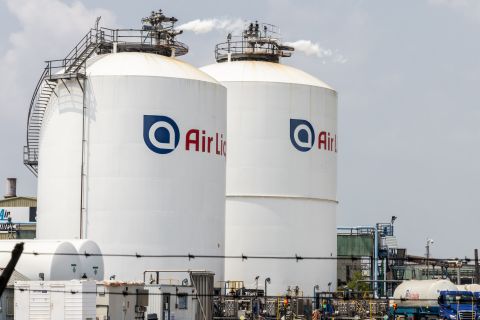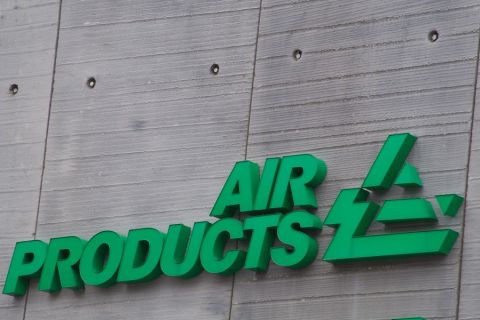Top White House officials met Sept. 30 with oil executives to discuss Hurricane Ian and low gasoline inventories as President Joe Biden warns the industry not to price-gouge consumers, according to two sources familiar with the matter.
The White House requested the meeting with eight oil companies, including Exxon Mobil Corp., Chevron Corp. and Marathon Petroleum Corp., late on Sept. 29, the sources said.
Retail gasoline prices have spiked after a series of unplanned outages at refineries and scheduled maintenance at other plants combined to tighten supply. The retail average of $3.797 a gallon is 11 cents higher than a week ago, according to AAA, though overall prices remain lower than a month ago.
Biden has warned oil companies not to use the storm as a pretext to raise gasoline prices, which spiked earlier this year after Russia's invasion of Ukraine.
“Do not, let me repeat, do not ... use this as an excuse to raise gasoline prices or gouge the American people,” Biden said this week. “This small, temporary storm impact on oil production provides no excuse for price increases at the pump, none.”
Hurricane Ian brought devastation to Florida on Sept. 29 and South Carolina on Sept. 30, while Hurricane Fiona took a heavy toll on Puerto Rico earlier in the month.
The meeting was scheduled to involve National Economic Council director Brian Deese, Energy Secretary Jennifer Granholm and Amos Hochstein, a senior energy adviser at the State Department.
Prices have risen the most in the Midwest and West Coast after a fire at BP Plc’s Toledo, Ohio, refinery and four different California refineries either shut for planned work or took units offline unexpectedly.
Refiners and retailers throughout California are allowed to immediately sell winter-blend fuel, the state's air pollution regulator said on Sept. 30, a move to reduce its highest in the nation fuel prices. California average price is $6.35 per gallon, compared to $3.80 nationally. The blend normally is sold across the state until Oct. 31.
Tight refining supply has caused the gap between wholesale gasoline futures and retail prices to widen this year. It currently sits at about $1.30 a gallon, compared with an average of 88 cents over the past five years.
U.S. producers Exxon Mobil and Chevron declined to comment on the White House meeting.
In a separate statement, Chevron said it “has zero tolerance for unlawful price gouging” and that it has reminded its independently owned distributors to adhere to price gouging laws activated as part of the Hurricane Ian response.
In a letter to the Energy Department, Exxon Mobil this week pushed back against reductions of U.S. fuel exports urged by the Biden administration in August, arguing that restricting shipments would further squeeze global supplies and lift pump prices at home.
“This week’s letter from a company that made nearly $200M in profit every single day last quarter, misreads the moment we are in,” Granholm said in a statement. “This is a time for American energy companies to take action to lower prices for consumers and to rebuild inventories of gasoline and diesel in this country that are below the five-year range.”
Recommended Reading
Air Liquide Eyes More Investments as Backlog Grows to $4.8B
2024-02-22 - Air Liquide reported a net profit of €3.08 billion ($US3.33 billion) for 2023, up more than 11% compared to 2022.
Air Products Sees $15B Hydrogen, Energy Transition Project Backlog
2024-02-07 - Pennsylvania-headquartered Air Products has eight hydrogen projects underway and is targeting an IRR of more than 10%.
Baker Hughes Awarded Saudi Pipeline Technology Contract
2024-04-23 - Baker Hughes will supply centrifugal compressors for Saudi Arabia’s new pipeline system, which aims to increase gas distribution across the kingdom and reduce carbon emissions
Greenbacker Names New CFO, Adds Heads of Infrastructure, Capital Markets
2024-02-02 - Christopher Smith will serve as Greenbacker’s new CFO, and the power and renewable energy asset manager also added positions to head its infrastructure and capital markets efforts.
Bobby Tudor on Capital Access and Oil, Gas Participation in the Energy Transition
2024-04-05 - Bobby Tudor, the founder and CEO of Artemis Energy Partners, says while public companies are generating cash, private equity firms in the upstream business are facing more difficulties raising new funds, in this Hart Energy Exclusive interview.





